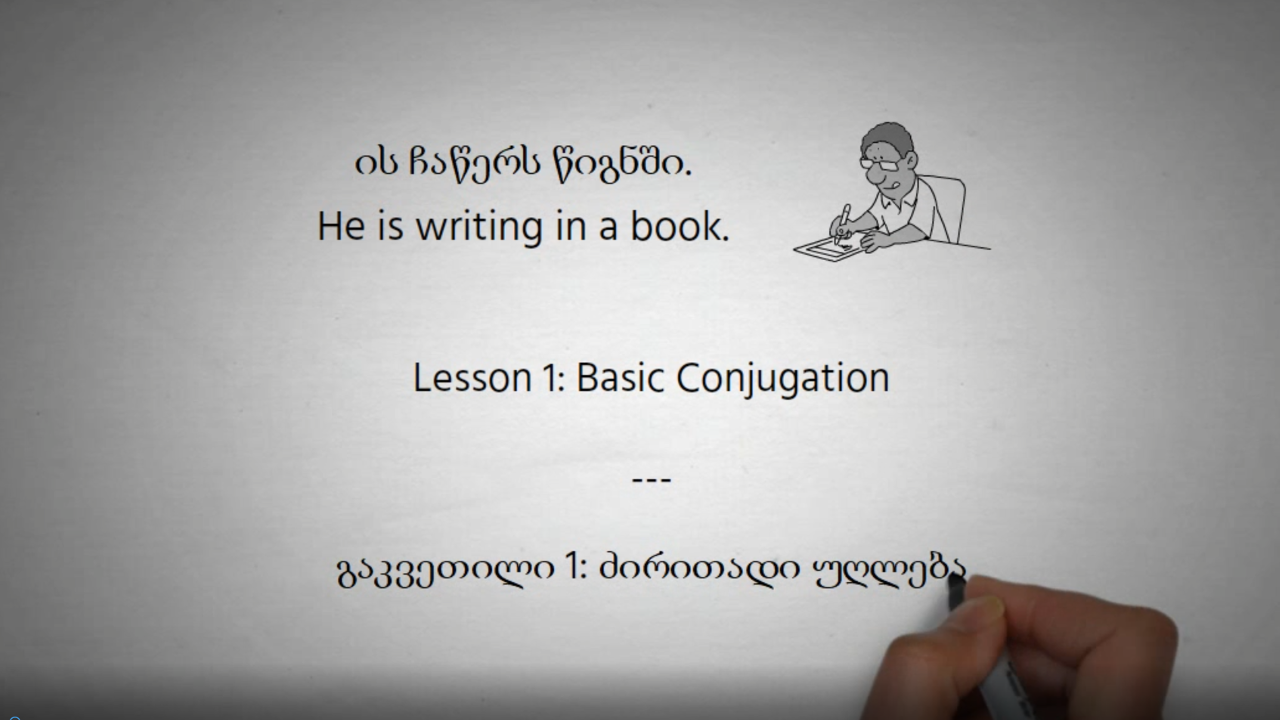Most travellers coming to Georgia for the first time are intrigued by this strange sounding language with the beautiful and equally strange alphabet. One quickly learns a couple of phrases like მდლობა, გამარჯობა, გაუმარჯოს! And most often it stops there, because it is just so difficult, both in written Georgian and with these strange sounds, one has to make very precisely when speaking. Some syllables' sounds even sound so similar to a foreigners ear, almost like one and the same, e.g. კ and ქ, or თ and ტ. Other countries have beautiful mountains and skiing resorts too, so why bother? Right?
Well, there is the occasional traveller, who gets stuck in Georgia and the Caucasus, I mean not quite literally, what I call the "infection with the Caucasus virus". Some people get involved with some NGO work in Georgia, find lasting friends, find a new life partner or decide to explore the vast diversity of Georgia's nature and connect with like-minded botanists and zoologists, as it was the case with me.
For a native English speaker, Georgian is one of the more difficult languages to learn. The difficulty ranking of the US Foreign Service Institute ranks Georgian in Category III, together with Finnish, Hungarian, Thai, Vietnamese and Mongolian, and more difficult than other languages in this category, for example, Armenian, Czech, Pashto, Russian, Turkish and Zulu. The most easy languages to learn are Danish, French, Spanish, Norwegian and Swedish (Category I); more difficult are German, Indonesian, Malaysian and Swahili in Category II. Only languages of Category IV are harder to learn than Georgian: Arabic, Cantonese and Mandarin, Japanese and Korean.
So where to start? Well, for the novice to the Georgian language, some excellent text books and online resources exist. For English speaking learners, Hewitt's "A Learner's Grammar" (2005) and for German speaking folks Abuladze & Ludden's recent "Lehrbuch der georgischen Sprache" (2006) as well as the old but still invaluable Tschenkeli "Einführung in die georgische Sprache" (1958). My guess is that with one of these text books, dedication and frequent practice, one can achieve levels B1/B2.
Anyone, striving for more, say a C1 level comprehension or even active knowledge, more practice is needed, of course and from a B2 level, one should be able to learn by themselves, right? Well, technically yes, but I experienced and still experience that it takes lots of time to find and organize new vocabulary lists and reading exercises like short texts in both languages with commentaries on the translation. This is exactly what this website and its resources is intending to provide: resources for the intermediate and advanced learners, lots of free content as well as the real nitty-gritty for serious learners signing up to get access to the vast thesaurus of 20+ topics with 10.000+ carefully chosen and often commented words, use cases, commented translations, the possibility to contact me with questions and feature requests and much more. Vocabulary lists are available for download separately and should greatly support fans of the great spaced repetition learning technique.
Please note, this site is not a thorough introduction to the Georgian language. There are some great text books and courses out there (see above). You can find lots of information on grammar here, especially the complex verb system, but in order to understand this and make it useful for you, you might probably want to work through a text book before you can make full use of the resources provided here.
Otherwise, enjoy the show, browse the sites, let me know how/if they help you and what you are missing. If you like what you see, I invite you to sign up and join the small circle of serious learners of the Georgian language here. Ideally you notice a leap forward in your efforts to master the language, both in passive and active vocabulary knowledge, text comprehension and richness & fluency of expression. It would make my day!
I suggest you start by browsing some of the reading material, the literature section or the thesaurus. Hardcore learners may even decide to dive headfirst into the grammar section or the verb conjugations. გემრიელად მიირთვით! ;-)
! Check out how to use quick links to find pages here.
Sources:
Foreign Service Instute (2017): Languages. Internet: https://2009-2017.state.gov/m/fsi/sls/orgoverview/languages/index.htm (June 2023)
Gelitz, C. (2023): Welche Sprachen sind leicht zu lernen? In: Spektrum Kompakt 23.23 Fremdsprachen, Spektrum der Wissenschaft Verlagsgesellschaft, Heidelberg, pp. 9-17.
